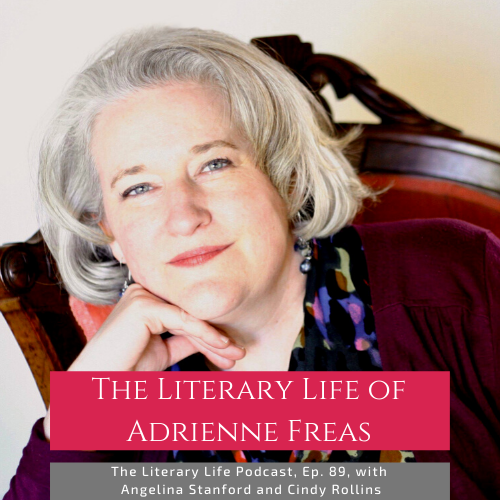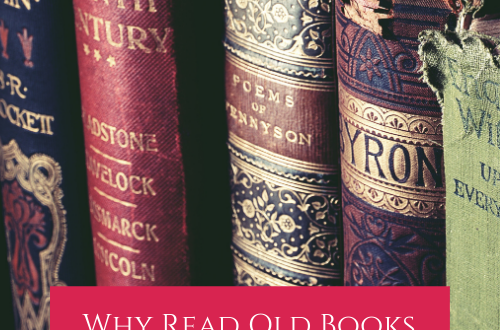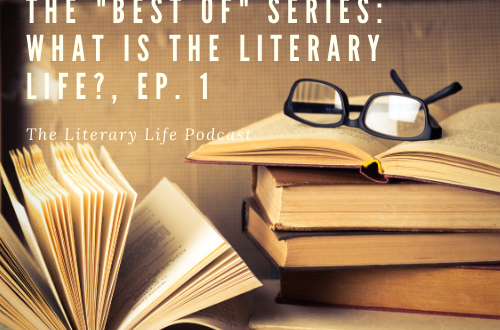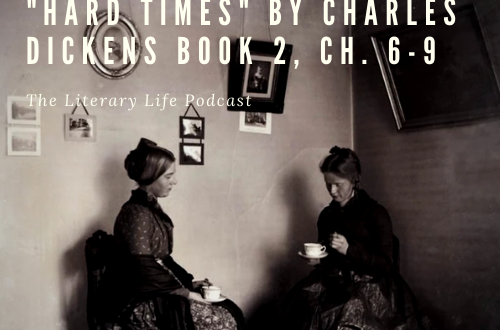
Episode 89: The Literary Life of Adrienne Freas
On The Literary Life podcast this week, hosts Cindy Rollins and Angelina Stanford interview their friend and veteran homeschool mother of 4, Adrienne Freas. Adrienne is now the Classical Education Advisor for the K-12 Curriculum and Professional Development Project at University of Dallas Classical Education Master’s Degree program at the University of Dallas, and she is active in consulting and advocating for Charlotte Mason’s educational philosophy. Adrienne was a featured speaker in the 2019 Back to School Conference, available for replay at morningtimeformoms.com.
Adrienne describes her young life and how the fine arts were the highlight of her childhood and her early struggles to learn to read. She shares how high school literature teachers and reading the classics whet her appetite for even more great literature. She talks about the difference it makes to have a teacher who is enthusiastic and believes the students can step up to the challenge. Cindy, Angelina and Adrienne all share their love for Charlotte Mason and her philosophy of giving children a wide and generous curriculum.
Listen to The Literary Life:
Commonplace Quotes:
Whenever we are called to teach, our proclamation of goodness should be so wrapped in beauty as to console. This should apply to our daily actions as well, and it is an art.
Timothy Patitsas
Even if I knew that tomorrow the world would go to pieces, I would still plant my apple tree.
Martin Luther
Q (Quiller-Couch) was all by himself my college education. I went down to the public library one day when I was 17 looking for books on the art of writing, and found five books of lectures which Q had delivered to his students of writing at Cambridge.
Helene Hanff
“Just what I need!” I congratulated myself. I hurried home with the first volume and started reading and got to page 3 and hit a snag:
Q was lecturing to young men educated at Eton and Harrow. He therefore assumed that his students—including me—had read Paradise Lost as a matter of course and would understand his analysis of the “Invocation to Light” in book 9. So I said, “Wait here,” and went down to the library and got Paradise Lost and took it home and started reading it and got to page 3 when I hit a snag:
Milton assumed I’d read the Christian version of Isaiah and the New Testament and had learned all about Lucifer and the War in Heaven, and since I’d been reared in Judaism I hadn’t. So I said, “Wait here,” and borrowed a Christian Bible and read about Lucifer and so forth, and then went back to Milton and read Paradise Lost, and then finally got back to Q, page 3. On page 4 or 5, I discovered that the point of the sentence at the top of the page was in Latin and the long quotation at the bottom of the page was in Greek. So I advertised in the Saturday Review for somebody to teach me Latin and Greek, and went back to Q meanwhile, and discovered he assumed I not only knew all the plays of Shakespeare, and Boswell’s Johnson, but also the Second Book of Esdras, which is not in the Old Testament and is not in the New Testament, it’s in the Apocrypha, which is a set of books nobody had ever thought to tell me existed.
So what with one thing and another and an average of three “Wait here’s” a week, it took me eleven years to get through Q’s five books of lectures.
After Reading “Antony and Cleopatra”
by Robert Louis Stevenson
As when the hunt by holt and field
Drives on with horn and strife,
Hunger of hopeless things pursues
Our spirits throughout life.
The sea’s roar fills us aching full
Of objectless desire –
The sea’s roar, and the white moon-shine,
And the reddening of the fire.
Who talks to me of reason now?
It would be more delight
To have died in Cleopatra’s arms
Than be alive to-night.
Book List:
The Ethics of Beauty by Timothy Patitsas
The Duchess of Bloomsbury Street by Helene Hanff
Macbeth by William Shakespeare
Great Expectations by Charles Dickens
Jane Eyre by Charlotte Brontë
The Glass Menagerie by Tennessee Williams
The Turn of the Screw by Henry James
The Lion, the Witch, and the Wardrobe by C. S. Lewis
Consider This: Charlotte Mason and the Classical Tradition by Karen Glass
A History of the English-Speaking People by Winston Churchill
Paradise Lost by John Milton
The Divine Comedy by Dante Algieri
The ABC Murders by Agatha Christie
Perceval by Chretien de Troyes
Til We Have Faces by C. S. Lewis
Becoming Mrs. Lewis by Patti Callahan
Lenten Lands by Douglas Gresham
The Betrothed: I Promesi Sposi by Alessandro Manzoni
The Consolation of Philosophy by Ancius Beothius
Range by David Epstien
Waverly by Sir Walter Scott
Reorienting Rhetoric by John D. O’Banion
Unbinding Prometheus by Donald Cowan
Heidi by Johanna Spyri
The Princess and the Goblin by George MacDonald
Understood Betsy by Dorothy Canfield Fischer
The Story of King Arthur and His Knights by Howard Pyle
Augustus Caesar’s World by Genevieve Foster
Beowulf translated by Burton Raffel
The Faerie Queene by Edmund Spenser
The Scarlet Letter by Nathaniel Hawthorne
David Copperfield by Charles Dickens
Oliver Twist by Charles Dickens
The Once and Future King by T. H. White
Men of Iron by Howard Pyle
Links Mentioned:
Support The Literary Life:
Become a patron of The Literary Life podcast as part of the “Friends and Fellows Community” on Patreon, and get some amazing bonus content! Thanks for your support!
Connect with Us:
You can find Angelina and Thomas at HouseofHumaneLetters.com, on Instagram @angelinastanford, and on Facebook at https://www.facebook.com/ANGStanford/
Find Cindy at morningtimeformoms.com, on Instagram @cindyordoamoris and on Facebook at https://www.facebook.com/cindyrollins.net/. Check out Cindy’s own Patreon page also!
Follow The Literary Life on Instagram, and jump into our private Facebook group, The Literary Life Discussion Group, and let’s get the book talk going! http://bit.ly/literarylifeFB
Subscribe to The Lit Life:









One Comment
Pingback: